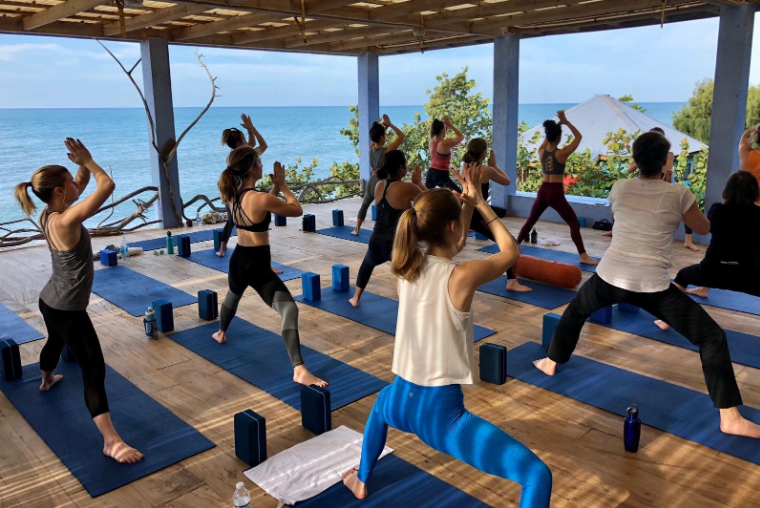In today's fast-paced world, where stress and anxiety levels are soaring, taking care of our mental well-being has become paramount. Mental health retreats offer a sanctuary for individuals seeking respite from daily pressures, allowing them to embark on a transformative journey towards healing and self-discovery. This article explores the definition and significance of mental health retreats, with a focus on the vibrant landscape of New Jersey. Additionally, we delve into the various aspects of mental health retreats, including their benefits, different types, and how to choose the right one for your needs.
Understanding Mental Health Retreats
A mental health retreat is a dedicated space that provides a holistic approach to mental well-being. It offers a therapeutic environment where individuals can disconnect from their daily routines and immerse themselves in activities and practices that promote healing and personal growth. By combining therapy, mindfulness, and wellness activities, mental health retreats empower participants to explore their emotions, develop coping strategies, and enhance self-awareness.
Benefits of Attending a Mental Health Retreat
Attending a mental health retreat can yield numerous benefits. Firstly, it provides an opportunity to step away from the demands of everyday life, allowing individuals to find solace and recharge their mental batteries. Retreats offer a supportive and non-judgmental environment, fostering a sense of community and connection with like-minded individuals. Through therapy and counseling sessions, participants can gain valuable insights, improve their emotional well-being, and develop coping mechanisms to navigate life's challenges.
Different Types of Mental Health Retreats
Mental health retreats come in various forms, catering to diverse needs and preferences. Some retreats focus on specific mental health conditions, such as anxiety or depression, while others offer a more general approach to overall well-being. Retreats may incorporate mindfulness practices, such as meditation and yoga, to cultivate self-awareness and reduce stress. Others may emphasize wellness activities like hiking, art therapy, or nutrition counseling to promote a balanced lifestyle. By choosing a retreat that aligns with their goals and interests, individuals can maximize the benefits of their experience.
Choosing a Mental Health Retreat in New Jersey
New Jersey, with its picturesque landscapes and serene settings, provides an ideal backdrop for mental health retreats. When selecting a retreat, it is crucial to research and evaluate the options available. Consider factors such as location, amenities, and services provided. Reading testimonials and reviews can offer valuable insights into the experiences of past participants. Additionally, understanding the retreat's focus and approach to mental health treatment ensures that it aligns with your specific needs and expectations.
Types of Services and Programs Offered
Mental health retreats offer a wide range of services and programs designed to address various aspects of well-being. Therapy and counseling sessions provide a safe space for individuals to explore their emotions, gain clarity, and develop coping strategies. Mindfulness and meditation practices cultivate present-moment awareness and promote overall mental equilibrium. Wellness activities, such as yoga, hiking, and art therapy, contribute to physical and emotional well-being. Workshops and educational sessions provide valuable insights and tools for personal growth. Nutritional counseling and healthy meals nourish both body and mind, enhancing overall wellness.
Finding the Right Retreat for Your Needs
To find the most suitable mental health retreat, it is essential to identify your personal goals and priorities. Consider the offerings and programs provided by each retreat and how they align with your needs. Reflect on the duration and intensity of the retreat, ensuring it suits your availability and comfort level. Evaluating the retreat's approach to mental health treatment, whether it be holistic, evidence-based, or specialized, is crucial in finding the right fit. Seeking recommendations and referrals from trusted sources can also provide valuable guidance in making an informed decision.
Preparing for a Mental Health Retreat
Once you have chosen a mental health retreat in New Jersey, it is important to make necessary arrangements and reservations. Communicate with the retreat staff about any specific needs or concerns you may have. Pack essentials for a comfortable and fulfilling experience, such as comfortable clothing, personal journals, and any required medications. Managing expectations and preparing for personal growth will allow you to fully embrace the transformative potential of the retreat.
Benefits and Outcomes of Attending a Mental Health Retreat
Attending a mental health retreat can have profound and long-lasting effects on an individual's well-being. By prioritizing mental health, participants often experience improved mental well-being, enhanced self-awareness, and personal growth. They learn new coping skills and strategies to navigate life's challenges with resilience. The retreat environment fosters the development of a supportive network and connections, providing a sense of belonging. Ultimately, attendees are empowered to develop a long-term plan for ongoing mental health maintenance.
Considerations for After the Retreat
To ensure the benefits of a mental health retreat extend beyond its duration, it is crucial to implement the lessons and skills learned. Consider seeking ongoing therapy or support to maintain progress made during the retreat. Incorporating self-care practices into daily life, such as mindfulness exercises or engaging in hobbies,can further support mental well-being. Staying connected with the retreat community and utilizing available resources can provide continued support and guidance on the journey towards sustained mental health.
Conclusion
In conclusion, mental health retreats in New Jersey offer individuals a transformative opportunity to prioritize their well-being and embark on a journey of self-discovery and healing. By providing a nurturing environment, these retreats facilitate personal growth, enhanced self-awareness, and the development of coping skills. Whether through therapy, mindfulness practices, wellness activities, or educational sessions, retreats empower individuals to cultivate emotional resilience and build a supportive network. As we navigate the complexities of modern life, it is crucial to prioritize mental health and consider the potential for transformative experiences that mental health retreats offer.





Comments